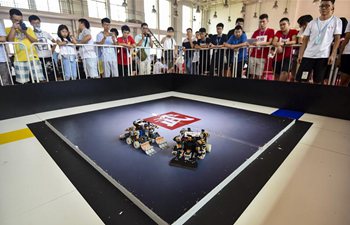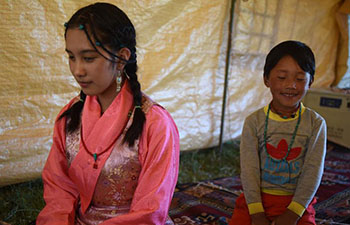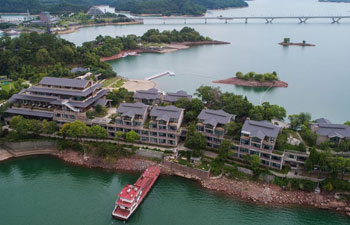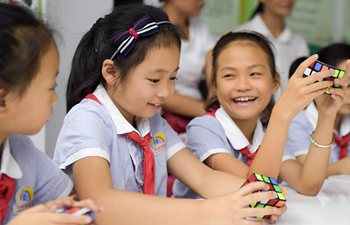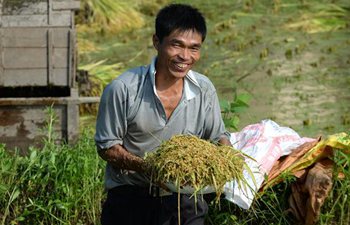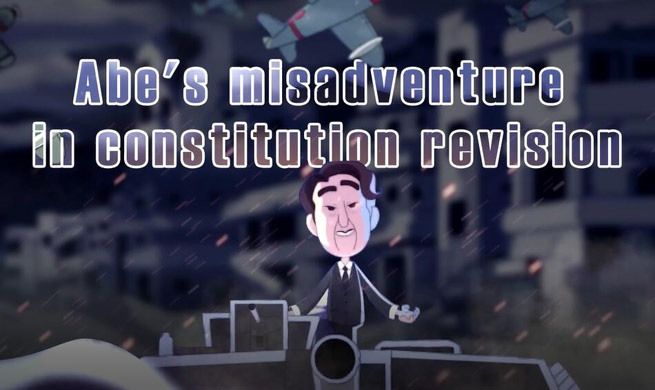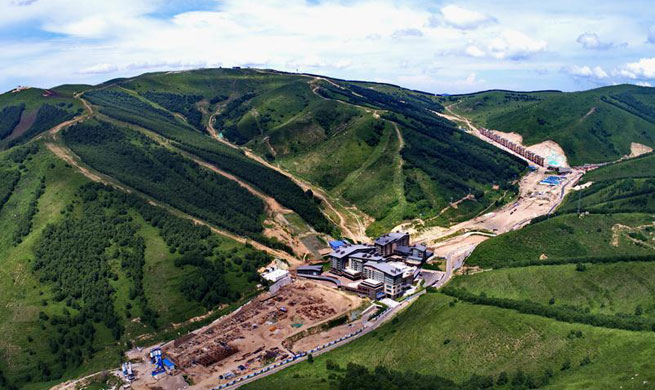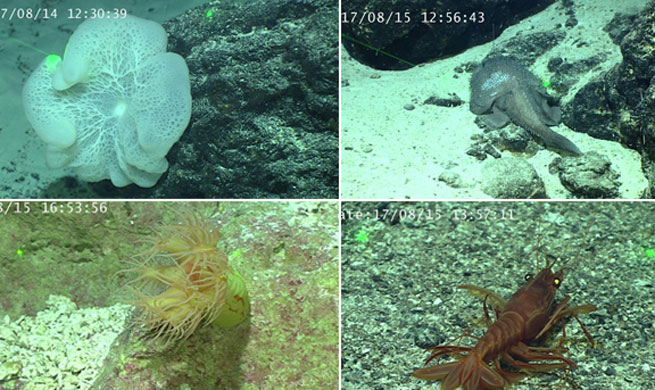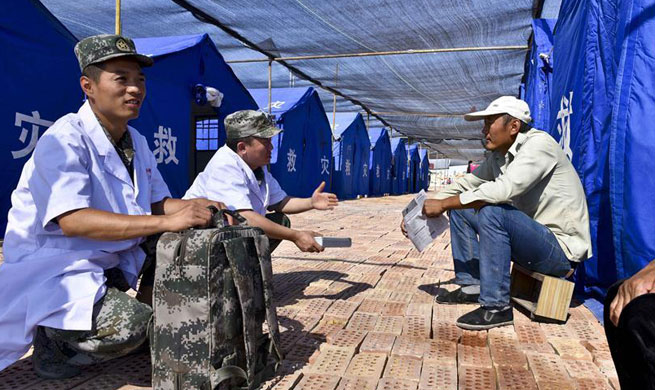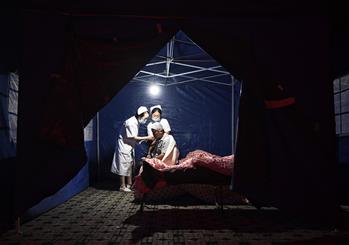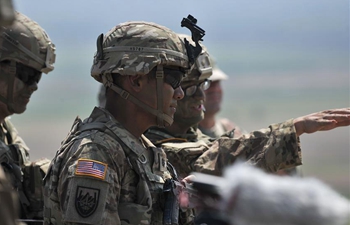by Hummam Sheikh Ali
DAMASCUS, Aug. 16 (Xinhua) -- Cosmetic enhancement has been going on for days in the Syrian capital Damascus in preparation for the Damascus International Fair, the Syrian economy's window to the world, which is due on Aug. 17.
The enhancement includes cleaning the riverbed of Barada River, mainly the canal that runs in the heart of the city.
Also, the Damascene Sword monument, the city's main symbol, has been restoring in the Umayyad Square, the main square in Damascus.
The monument has suffered damages due to the mortar shells that rained down the capital when the rebels were strong in the eastern countryside of Damascus.
New glass was put on the facade of the monument, with new lights lit the sword.
Also, the road linking western and eastern Damascus has also been widened and paved with new bitumen, new green plants being put along the road.
The road to the airport has also received restoration. It was used for military purposes when the villages and towns around the airport were in the hands of the rebels.
The two roads will be the main way for visitors to reach the fairgrounds near the Damascus airport.
The government also installed new power-saving street lights along the road to the airport and central Damascus.
Also, the Syrian airlines made a 30 percent discount for all flights to Damascus International Airport during the 10-day fair.
The government will also provide free transportation from Damascus to the fairgrounds to all the visitors from 8:00 a.m. till 12:00 a.m.
Just less than two months ago, the government has started removing checkpoints from the capital, in a bid to minimize the number of checkpoints that have mushroomed across the country over the past six years of war.
The move was also a step undertaken as the security condition is improving in the capital, with the implementation of the internationally-backed de-escalation zones' deal in the eastern countryside of Damascus.
The de-escalation zones included areas under the control of rebels who are not affiliated with the al-Qaida-linked Nusra Front or the Islamic State (IS) group.
But the war is still ongoing in the al-Qaida-affiliated Failaq al-Rahman's operating area, including the Ayn Tarma area and Jobar in the Eastern Ghouta countryside.
However, the battle on Ayn Tarma and Jobar will not affect the security condition in the capital due to the heavy strike the rebels there have suffered over the past week.
Established in 1954, the fair's last edition was held in 2011, the first year of the Syrian war. In later years, the fair was suspended because of the war before the Syrian government decided to renew it.
It is a sign that the country's war is declining and the economy reviving, as the economic condition, which hit rock bottom during the prolonged conflict, has become the focus of the government.
Holding the 59th edition of the Damascus International Fair is a "strong indication of the beginning of the recovery of the Syrian economy," said Industry Minister Ahmad Hamo, recently quoted by the government-run Thawra newspaper.
The message that the government wants to deliver is that "life is beating back in Syria," after years of bloody conflict, Fares Kartali, director of the General Establishment for Exhibitions and International Markets, told Xinhua in a recent interview.
He noted that the sprawling fairground, which covers an area of 1,200 square km, has never been targeted, even though many villages nearby had fallen to the rebels before the army recaptured them in early 2016.
Kartali said an area of more than 70 square km has been designated to host over 1,500 local and international companies taking part in the fair.
The foreign companies come from 38 countries including China, Russia, Iran, France, Britain and Belgium, and they will show their products at the fair, he added.
The government is now focused on reviving the sluggish economy and pushing the reconstruction process by encouraging foreign companies to visit the country and make investments.
"Our fair this year will be the best to take place since the establishment of the Damascus International Fair in 1954," Kartali said.
After six years of war in Syria, the country's economy has become crippled with the wide-ranging U.S. and European sanctions against President Bashar al-Assad's government.
The total economic losses so far are calculated at about 226 billion U.S. dollars, according to estimates published by the World Bank last month.
The report found that cumulative GDP losses since the war erupted "have been estimated at 226 billion dollars, about four times the Syrian GDP in 2010."
The effects will be felt for decades, as it would take 10 to 15 years for Syria's per capita GDP to return to pre-war levels.




